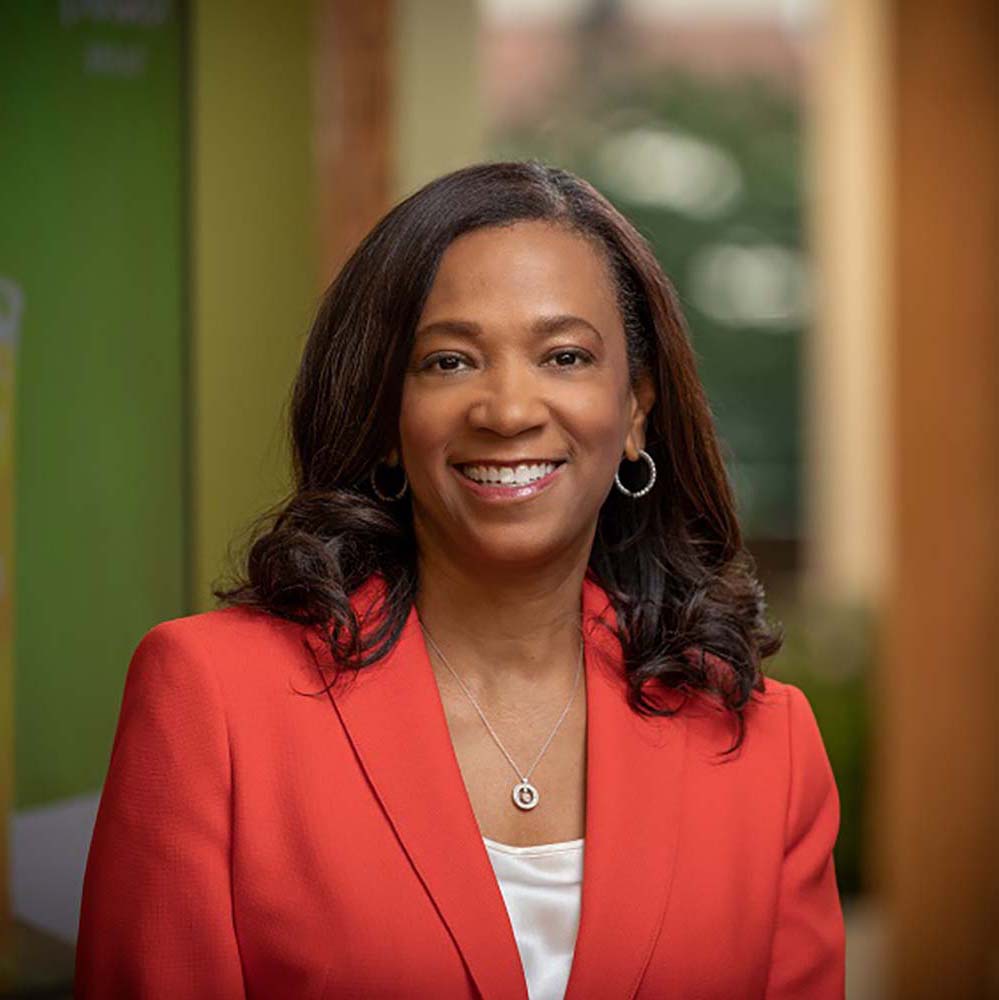
Debbie Roberts
Executive VP and COO of Panera Bread
The Chicago native grew up in a blue-collar neighborhood, the youngest of four, and says she was the toughest of the bunch. Her parents gave her the support and wisdom she relies on to this day. They impressed upon her the importance of education, working hard, and a never-quit attitude that continues to serve her well.
“My parents were all about education and being the best,” she says. “When I look back on it, those are the things that now, when my parents aren't around, I really miss. I talk a lot to my own daughter about what they told me. One of the things I've reflected on a lot lately, with all the turmoil in this country, is the challenges she'll be faced with as an African-American woman.
“My dad used to say people would make assumptions about what I could and couldn’t do because I was a woman of color, that I’d have to blow all assumptions away, so they’d see what I was capable of and be amazed,” she continues. “He’d tell me, ‘If you're overly prepared and so well-educated, it’d be the opposite of what they anticipate.’ Those are some of the same things I tell my daughter. It's funny, I guess, because it’s 40 years later, and I’m telling her the same things my parents told me.”
Her father also told her people might assume she couldn’t succeed at a certain job, that they wouldn’t think she was as smart as someone else, and it was her job to prove them wrong.
“Not only would I have to disprove that I didn’t belong at the table, I’d have to show them I could OWN the table,” she says.
Roberts has always believed in the education piece and loved it. In school she sought to be at the top of her class and make her parents proud. After graduating from the University of Illinois with a degree in accounting, she started working as a CPA in the steel industry. But her destiny awaited her—at a giant fast-food chain called McDonald’s.
In 1990, a friend of hers at the company told her they were hiring. She was certain it wasn’t a good fit but decided to interview anyway. She immediately realized McDonald’s was a global organization with huge opportunities. Offered an accounting job, she accepted and began to learn all she could about the restaurant business.
As an entry-level accountant, she had to work hard to form relationships with others. Her mother encouraged her to keep making inroads with them. It gave her the strength to seek out friends and mentors of all creeds, color, and gender.
“My mother would say, ‘You’ve got this, hunker down, push harder.’ I give that same advice to others today,” she notes. “I tell people all the time they can’t limit their relationships to people who look just like them. They’ve got to look beyond their ethnicity and gender.”
At McDonald’s, Roberts met colleagues willing to mentor and coach her. Career growth became more attainable. One of those mentors, Jan Fields, former McDonald’s USA President, would change the trajectory of her career. Fields suggested she move from accounting to operations and sponsored her ascent up the corporate ladder.
“I was blown away because at McDonald's, getting into restaurant operations was a huge deal, a huge honor,” she says. “I knew Jan liked me, but not to that level. After doing some training, I moved into operations, and she became my coach, mentor, and sponsor. We’d have regular meetings and talk about how things were going. She’d OK some things, say no to others, and tell me to think about certain things. That was the coaching and mentoring part.
“Later I found out she would go into C-suite meetings and talk about me, my potential, and how she saw me as a leader in the organization. That was the sponsorship part. I’m fortunate to have had great mentors who were willing to help me, tell me the things I did great, and the things that weren’t so great.”
Roberts eventually became Eastern Zone President but left in 2020 to join Panera Bread, as its executive vice president and COO. Today, she’s optimistic more people of color will advance to the senior executive level, especially if the industry continues to embrace diversity.
“There’ve been many times when people of color haven’t gotten the tools or opportunities to grow,” she says. “We need to make more commitments and live up to them, be accountable when analyzing diversity metrics, and train the people at the lower levels—train, coach, and develop them—without unconscious bias [deciding] what they’re capable of.”
She shared three tips to help BIPOC employees enhance their careers:
- Find mentors and supporters. A lot of black and brown people never break through beyond director. Some get to be vice presidents, but that’s tougher to achieve. Build bridges and relationships, network, be vulnerable, and ask for help. Figure out how to connect with the people who have the answers and get comfortable doing that. Lean in, and don’t ever feel like you don’t belong. Get the visibility you need to move up.
- Education is the equalizer. Once you have knowledge in your head, no one can take it away from you. That’s what makes me comfortable. I know my abilities, capabilities, and what I can achieve.
- Own your own career. You’re in charge of your own career. Whenever there’s an opportunity, grab onto it. If there’s a special project, raise your hand, do it right, stay late and come in early. After a while people will see you as a go-to person, especially if you do a great job.